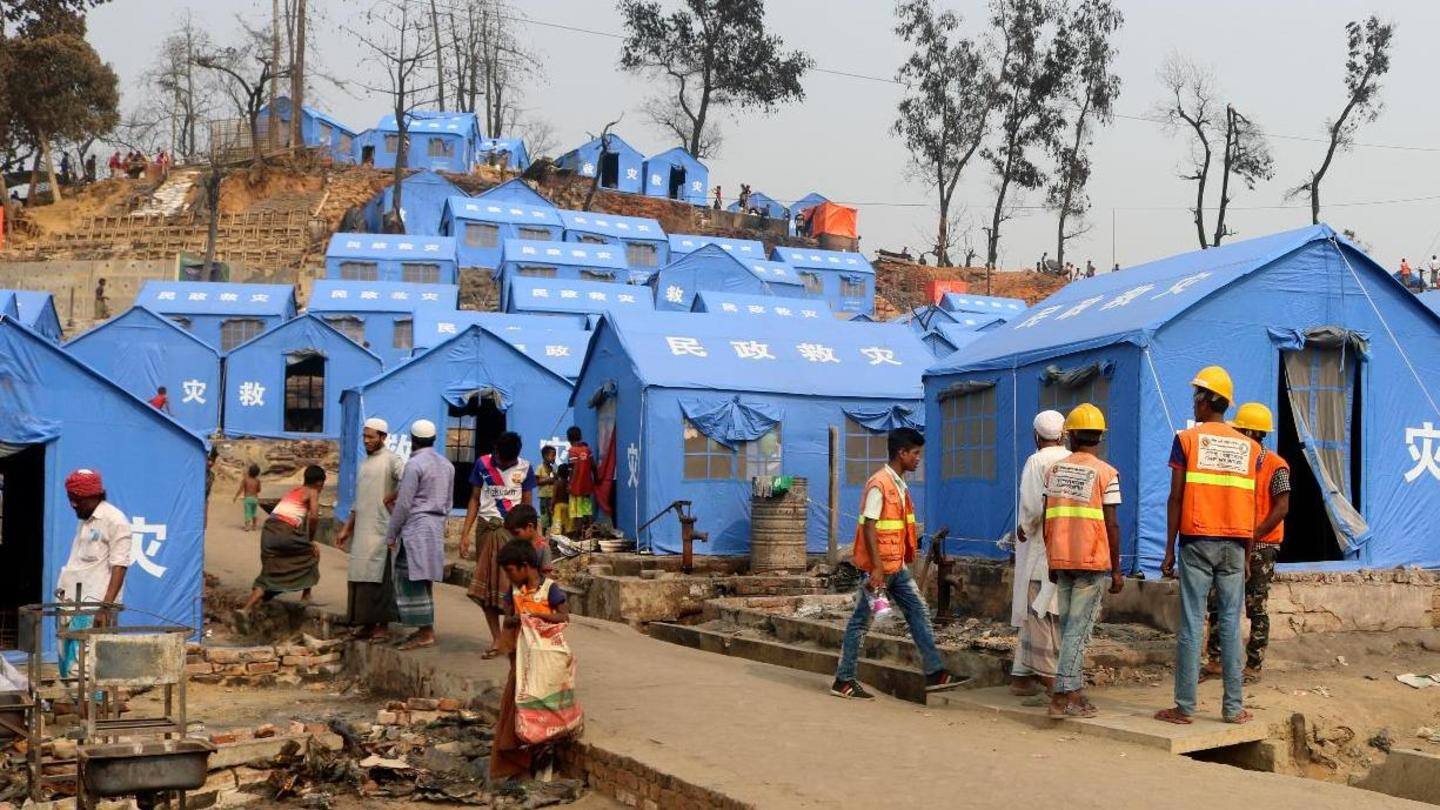
Fire kills three in market near Rohingya camp in Bangladesh
What's the story
A fire on Friday destroyed more than 20 shops in a makeshift market near a Rohingya refugee camp in southern Bangladesh, killing at least three people, police and witnesses said.
Local police chief Ahmed Sanjur Morshed said they recovered the bodies from the debris after it took firefighters several hours to bring the blaze under control.
Information
Fire broke out when residents of Kutupalong camp were asleep
The fire broke out early Friday when residents of the sprawling Kutupalong camp for Myanmar's Rohingya refugees were asleep. Sayedul Mustafa, the owner of a shop, confirmed the dead were his staff.
Struggle
Firefighters struggled for more than three hours
Emdadul Haque, an official with the Fire Service and Civil Defense, said they had to struggle for more than three hours to bring the fire under control.
He said several others were also injured.
It was not clear how the fire began. It came after another devastating fire last month in the camp left 15 people dead, 560 others hurt and about 45,000 homeless.
Shelters
Started rebuilding shelters after massive fire last month: Government
Aid agencies and the government said they started rebuilding the shelters after the massive fire last month.
Notably, authorities have sent about 13,000 refugees to an island in recent months, promising a better life. The island has been prepared by the government to accommodate 100,000 refugees. Officials said their effort to send more refugees would continue.
Shelter
Bangladesh eager to begin sending Rohingya back to Myanmar
Bangladesh has sheltered more than a million Rohingya Muslims, the vast majority having fled Myanmar in 2017 in a major crackdown by that coUNtry's military.
The UN has said the crackdown had a genocidal intent, a charge Myanmar rejects.
Bangladesh has hosted the refugees in crowded refugee camps and is eager to begin sending them back to Buddhist-majority Myanmar.
Attempts
However, Rohingya refuse to go back to Myanmar
However, several attempts failed in sending them back to Myanmar because the Rohingya refused to go, fearing more violence in a country that denies them basic rights including citizenship.
The repatriation effort was made even more uncertain in February when Myanmar's military staged a coup and replaced the elected, civilian government that had been in office since 2016.